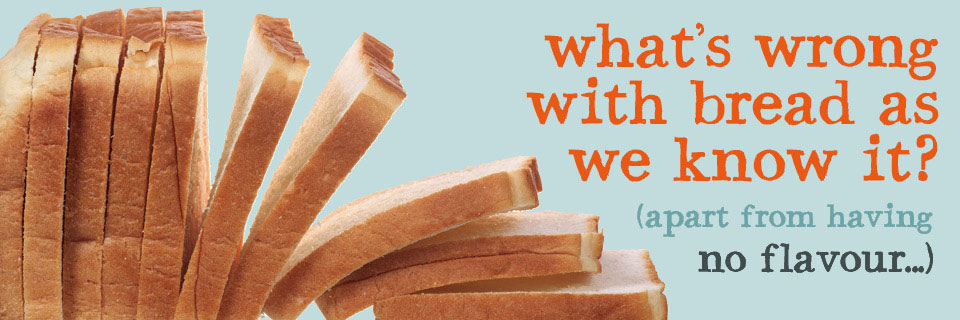Additives
The ingredients you need for a loaf of bread are flour, water, salt and yeast or for Sourdough bread just flour, water and salt. However, the loaf you buy from the supermarket or even your local bakery is likely to contain: flour treatment agent, bleach, reducing agent, emulsifiers, preservatives and a huge list of enzymes such as amylase, oxidase, protease, peptidase, lipase, hemicellulase, xylanase, transglutaminase and phospolipase (which may derive from the pancreas of pigs). Enzymes are not required to be listed on the label, because they are treated as ‘processing aids’.
Speed
Modern industrial bread is made too fast – often in 90 minutes from the first mix to a baked loaf. This does not allow for the flavour or beneficial lactic acid bacteria to develop. Nor does it allow for the potentially toxic gliadin in gluten to break down, which according to research is a major contributor in bloatedness, wheat intolerance and coeliac disease.
Lack of nutrition
Flour made with modern roller milling technology is significantly less nutritious than stoneground flour. The constituent parts of the grain – bran, the nutritious germ and starchy endosperm are separated during grinding whereas stoneground flour is produced by crushing the whole grain, thus retaining the vital nutritious parts.
‘Healthy brand’ breads may be fortified with vitamins and minerals, but these are synthetically manufactured and added to the white flour that has had all its natural vitality mechanically extracted.




